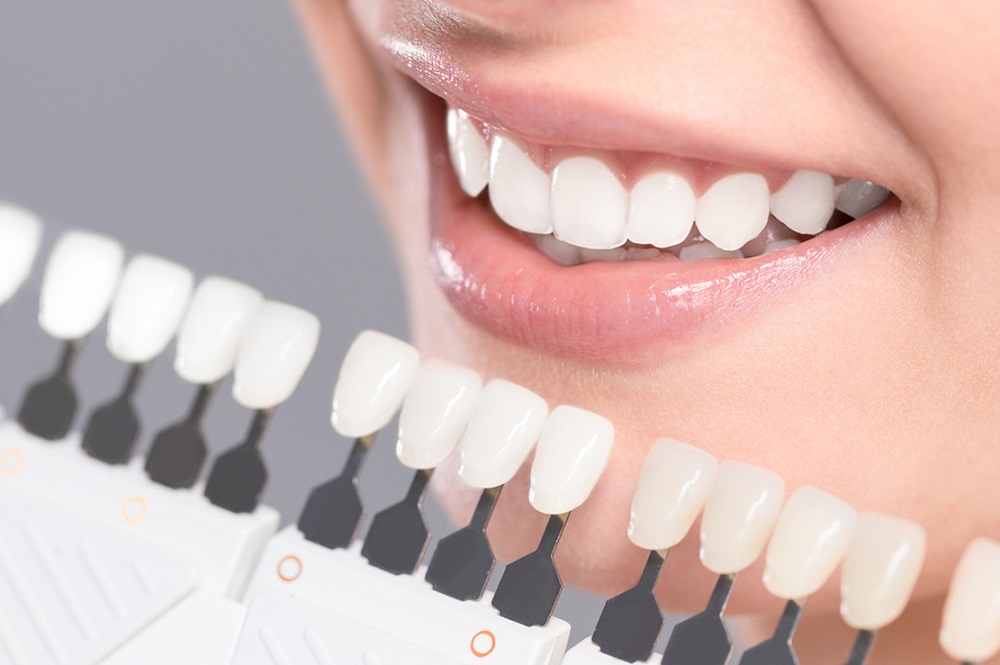A Comprehensive Guide to Choosing Veneers in Singapore

Dental veneers are becoming an increasingly popular choice for those seeking a flawless smile. Whether you're dealing with discolored, chipped, or misaligned teeth, veneers can be an effective solution. If you're considering veneers in Singapore, it's essential to understand the types available, the costs involved, and what to expect from the procedure.
Understanding Dental Veneers
Dental veneers are thin, custom-made shells designed to cover the front surface of your teeth. They're typically made of porcelain or composite resin and are bonded to the teeth to improve their appearance. Veneers are commonly used to correct issues like discoloration, gaps, or chipped teeth, giving patients a brighter, more even smile.
Types of Veneers Available in Singapore
When it comes to choosing veneers, there are primarily two types to consider:
1. Porcelain Veneers
Porcelain veneers are known for their durability and natural appearance. They're stain-resistant, making them a popular choice for those looking for long-lasting results. However, they are more expensive compared to other types and usually require multiple dental visits.
2. Composite Resin Veneers
Composite resin veneers are a more affordable option compared to porcelain. They can be applied in a single visit, making them convenient for those with busy schedules. However, they are less durable and may require replacements more frequently.
Factors to Consider When Choosing Veneers
Before committing to veneers, it's crucial to consider the following factors:
Cost of Veneers in Singapore
The cost of veneers varies depending on the type you choose. On average, porcelain veneers can cost between SGD 1,000 to SGD 2,500 per tooth, while composite veneers range from SGD 500 to SGD 1,200 per tooth. It's advisable to consult multiple clinics to compare prices and services.
The Procedure and What to Expect
The process of getting veneers usually involves an initial consultation, where the dentist will assess your oral health and discuss your goals. For porcelain veneers, a small amount of enamel is removed from your teeth before the veneers are custom-made and bonded. Composite veneers, on the other hand, are directly applied to the teeth and shaped during a single visit.
Benefits of Dental Veneers
- Natural Appearance: Veneers mimic the look of natural teeth, giving you a seamless smile.
- Durability: Porcelain veneers are known for their strength and can last over a decade with proper care.
- Stain Resistance: Porcelain veneers are resistant to coffee, tea, and wine stains, maintaining their whiteness longer.
- Minimally Invasive: Unlike crowns, veneers require less enamel removal, preserving more of your natural tooth structure.
Aftercare Tips for Veneers
Proper aftercare is essential to maximize the lifespan of your veneers. Here are some tips:
- Brush and floss daily to maintain oral hygiene.
- Avoid biting into hard foods to prevent chipping.
- Visit your dentist regularly for check-ups and professional cleanings.
- Use a non-abrasive toothpaste to prevent surface damage.
Choosing the Right Dental Clinic in Singapore
When selecting a clinic for veneers, consider factors such as the dentist's experience, patient reviews, and the technology used. Clinics like Nuffield Dental are known for their advanced techniques and experienced professionals, ensuring high-quality results.
In conclusion, dental veneers offer a fantastic way to enhance your smile, boosting confidence and self-esteem. By understanding the types, costs, and aftercare involved, you can see your doctor, and get good dental, you can make an informed decision that aligns with your dental goals.
Frequently Asked Questions (FAQs)
Q1: How long do dental veneers last?
A: Porcelain veneers can last between 10-15 years, while composite veneers typically last around 5-7 years with proper care.
Q2: Can veneers fix gaps between teeth?
A: Yes, veneers can effectively close small gaps between teeth, providing a more uniform appearance.
Q3: Are veneers painful?
A: The procedure is generally pain-free, as dentists use local anesthesia to numb the area. Some patients may experience mild sensitivity after the procedure.
839GYLCCC1992



Leave a Reply